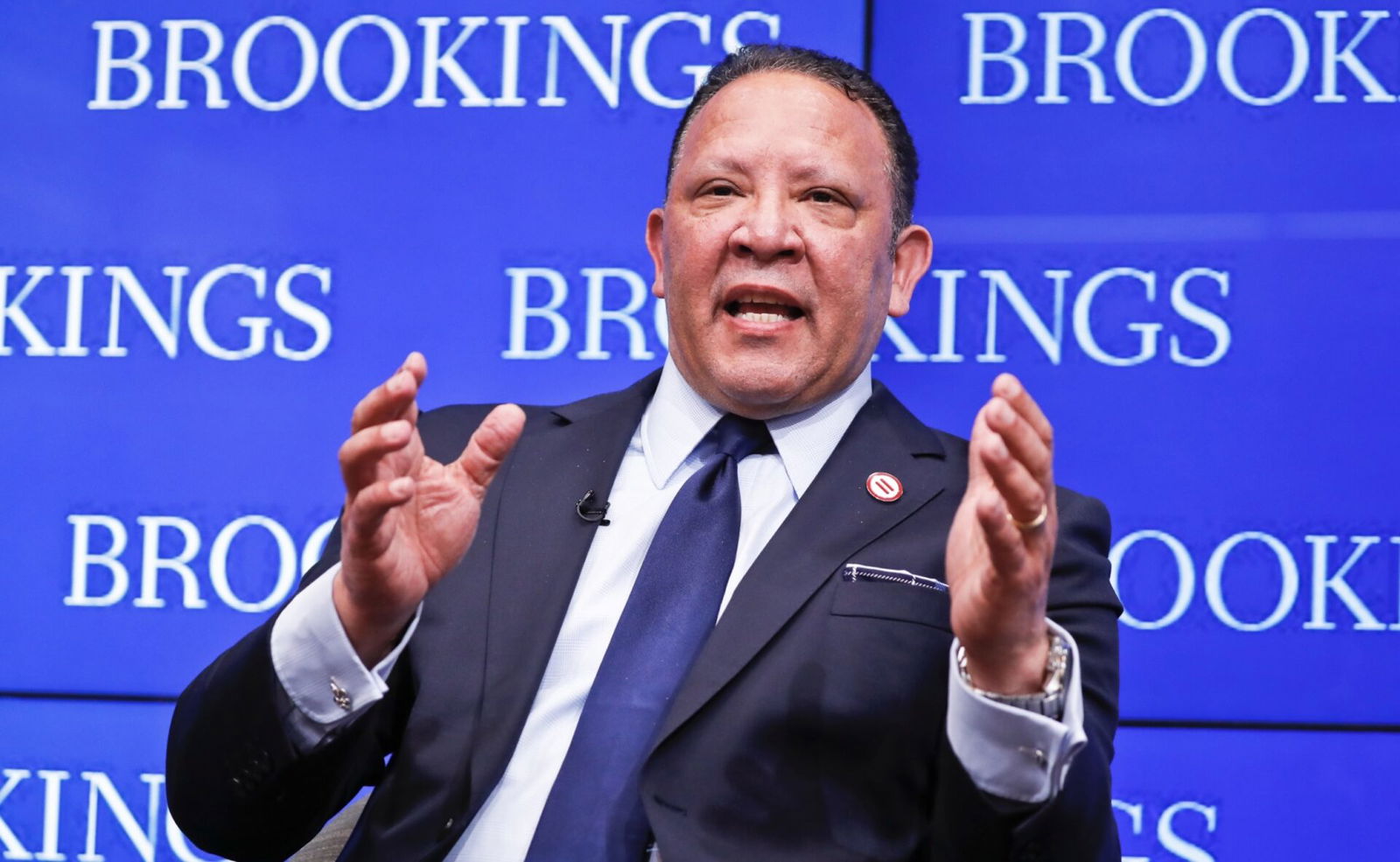
March 2, 2024
National Urban League Focuses On The Civil Rights Act Of 1964 In 2024 State Of Black America Report
The report is broken into three sections: Overview of the 2024 Equality Index, Biden Progress Report, and the attack on the Civil Rights of 1964.
The 2024 State of Black America report, published by the National Urban League, focuses on the Civil Rights Act of 1964. The report, shared with BLACK ENTERPRISE, is broken down into three sections – an Overview of the 2024 Equality Index, the Biden Progress Report, and the attack on the Civil Rights of 1964 – while NUL celebrates 60 years of the historic legislation by summarizing where Black America stands in the continuous fight for equality.
“This year marks the 60th anniversary of that landmark legislation, but the journey toward racial justice in the United States is older than the nation itself and nowhere near complete,” President and CEO Marc H. Morial wrote. “No issue in history has met with more resistance in the United States Congress than civil rights.”
The 2024 Equality Index
For 20 years, the Equality Index looked at the conditions of Black people compared to those of whites. This year’s index shows that compared to 2022, the 2024 Equality Index of Black America stands at 75.7%, a jump from 73.9%.
As far as voting, midterm elections have lower registration and voting rates than in general elections. The percentage of Blacks registered to vote was slightly above 60% in 2022, a decrease from 62.4% in 2002. In the same year, the percentage of Black people who submitted votes dropped from 54% to 42.3%
However, in recognizing the Civil Rights Act, numerous statutes created to protect us are now under severe attack. Title I, which “barred unequal application of state voter registration requirements for federal elections,” has been tugged and pulled in an attempt to take away that right. The same rhetoric can be seen today in Republican-led states. Florida, Iowa, Georgia, Montana, Kansas, and Texas have passed some of the harshest restrictive voting laws in the U.S.
The Attack on the Civil Rights of 1964
The overturning of several landmark cases has threatened the Civil Rights Act, such as Students for Fair Admissions v. President and Fellows of Harvard College and Students for Fair Admissions v. University of North Carolina.
Title VII, “Discrimination of Employment,” went under nationwide attack in 2023 when the Supreme Court struck down race-conscious admissions programs at Harvard University and the University of North Carolina, blocking affirmative action policies used to create equal opportunity for Black, Hispanic, and other underrepresented minority students on U.S college campuses.
The high court’s decision created a domino effect, threatening diversity, equity, and inclusion (DEI) programs designed to increase diversity in the workplace. The decision affected entities like the Fearless Fund, an Atlanta-based venture capital fund accused of unlawful racial discrimination for supporting Black-woman-owned small businesses.
The Biden Progress Report
Before being elected, President Joe Biden made numerous promises for the betterment of the Black community. According to Morial, Biden was the first president to implement an explicit Black agenda after his inauguration. With the Lift Every Voice promise, the president reportedly “committed to prosecuting hate crimes, fighting gun violence, and fighting poverty” through essential investments in education, housing, and small businesses.
But has he kept his word?
It would seem so. His promise to have a cabinet reflect what he calls “the Soul of America” started by naming Kamala Harris as his running mate. After being elected, he enlisted a number of people of color to hold important titles, including Lloyd Austin as our Secretary of Defense and confirming Supreme Court Justice Ketanji Brown-Jackson.
Biden also took steps to improve the economy with plans such as the Minority Business Development Agency, reaching a 30-year goal of the NUL.
In the justice reform and affordable housing field, the Justice Department awarded $334 million for school security, and the Department of Housing and Urban Development created the first-ever task force to remove racial and ethnic bias in home valuations.
However, there are still things to do. The report laid out action items for Biden’s next term, including passing the John Lewis Voting Rights Advancement Act, establishing a Reparations Commission, and passing the George Floyd Justice in Policing Act.
RELATED CONTENT: Black Organizations and DEI Activists Add Pressure To Combat Anti-DEI Tactics From Major Corporations